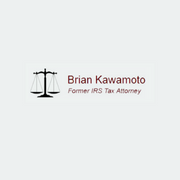
If you are facing an overwhelming amount of debt, filing bankruptcy may be the answer. Before you begin the proceedings, however, it is essential that you understand precisely what’s at stake. There are both drawbacks and advantages of discharging debt through bankruptcy, and whether it’s the best approach for regaining your financial footing will depend on a variety of factors. Here, Aiea’s Brian Kawamoto Attorney shares what you should know before declaring bankruptcy in Hawaii.
Not All Debts Are Dischargeable
If most or all of your debt is comprised of student loans, overdue child support and government fines, then filing bankruptcy may not provide you with a clean slate. Both chapter 7 and chapter 13 can discharge certain kinds of debt, typical debts are medical bills, credit card debt, personal loans. Income taxes may also be discharged provided that certain tests are met. If you have a combination of dischargeable and nondischargeable debt, though, filing may still be worthwhile because once you eradicate applicable debts, you can focus solely on paying off the bills that remain.
Omissions and being Untruthful Can Lead to Bankruptcy Problems in your case
 If you fail to value your property correctly, you concealed assets, gave property away, or you sold some assets just prior to filing and you do not disclose the sale or its proceeds to the Trustee you could be faced with a lot of trouble. People have gone to jail for committing bankruptcy fraud. If your daily living expense budget is extravagant or way beyond the norm, or if you went on a spending spree with all of your credit cards just prior to filing, the court will likely find your filing to be abusive and dismiss your case. If that happens you will be stuck with your debts and you will also have to surrender non-exempt assets to the Trustee’s office. The debtor is responsible for the truthfulness and accuracy of all information contained in his bankruptcy petition and schedules, he will also have to swear under oath that the information provided in the documents is true and correct. To avoid problems with your case and even jail time, every debtor should carefully and thoroughly review the documents before they are filed with the court. It is also wise to consult with an experienced attorney if you decide that you wish to file and avoid having problems with your case.
If you fail to value your property correctly, you concealed assets, gave property away, or you sold some assets just prior to filing and you do not disclose the sale or its proceeds to the Trustee you could be faced with a lot of trouble. People have gone to jail for committing bankruptcy fraud. If your daily living expense budget is extravagant or way beyond the norm, or if you went on a spending spree with all of your credit cards just prior to filing, the court will likely find your filing to be abusive and dismiss your case. If that happens you will be stuck with your debts and you will also have to surrender non-exempt assets to the Trustee’s office. The debtor is responsible for the truthfulness and accuracy of all information contained in his bankruptcy petition and schedules, he will also have to swear under oath that the information provided in the documents is true and correct. To avoid problems with your case and even jail time, every debtor should carefully and thoroughly review the documents before they are filed with the court. It is also wise to consult with an experienced attorney if you decide that you wish to file and avoid having problems with your case.
If you need debt relief, turn to Brian Kawamoto Attorney to determine if filing bankruptcy is right for your situation. Serving clients out of his office in Aiea, this bankruptcy lawyer has more than 25 years of experience helping Oahu residents restore and protect their financial health. As a former IRS tax attorney, his areas of expertise include tax relief and estate planning. To schedule a consultation, visit his website or call (808) 486-6107.
About the Business
Have a question? Ask the experts!
Send your question

